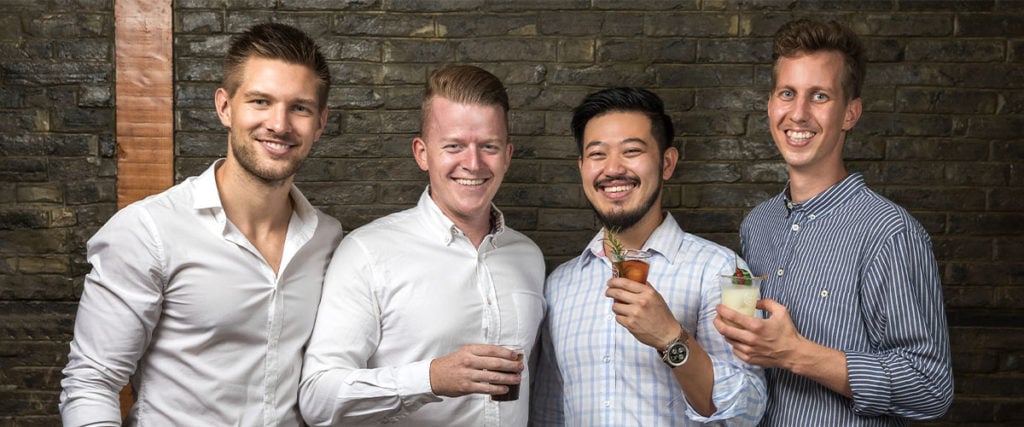Meet LAIBA, Asia’s first premium handcrafted cocktail brand. Undeterred by COVID-19, they’re delivering luxury Negronis and infused gins straight to your front door.
Born out of a passion for alcohol and cocktail-making, craft-bottled cocktail brand LAIBA has quickly garnered international fame by recruiting one of Asia’s top mixologists Michael Chen as their founding partner and product developer. As the winner of the 2018 CHIVAS Masters China and former mastermind behind Eau-de-Vie Bar Group, which was featured as one of the World’s 50 Best Bars for four consecutive years, Michael is no stranger to creating signature cocktails that impress.
Within a short three years, LAIBA has wrestled its way to the forefront of China’s maturing cocktail and hospitality scene, and now works with some of the biggest hotel names in the business, names like The Ritz-Carlton, Four Seasons Hotel, The Peninsula, and InterContinental Hotels & Resorts. Today the Shanghai-based line is available in Singapore, Thailand, Cambodia, and Hong Kong, and has its sights on further growing its customer base in markets like Macau, Vietnam, Australia, Japan, Korea, Europe, and the UK -– all by the end of the year.
Here, we talk to Alexander Peterson, one of the LAIBA founders, to find out the secret behind LAIBA’s success, the entrepreneurial scene in China, and how they’ve pivoted their business strategies into a delivery model during COVID-19.
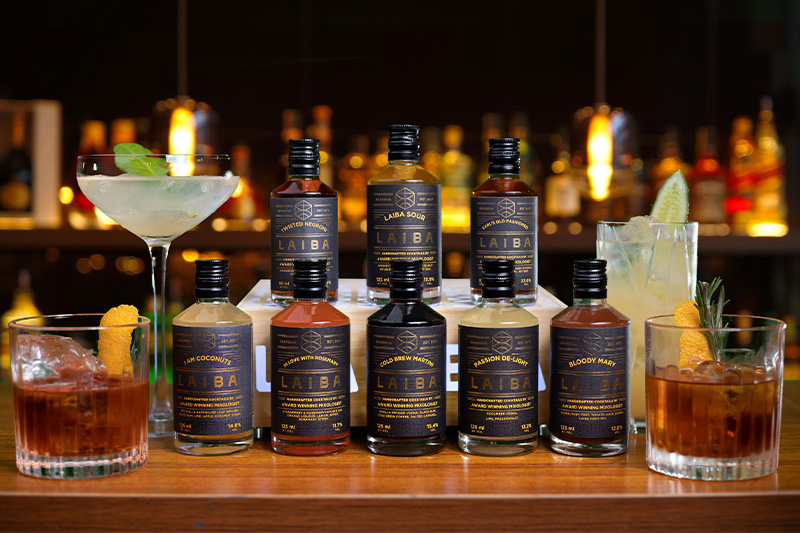
LAIBA: The Inception of an F&B Pioneer
LAIBA began out of pure interest, with one founder, Mark Connolly, having previously sold craft whiskey and beer and the other, Lars Battefeld, considering importing Nordic spirits into China as a potential business. In 2016, the three of them came together and began their journey in the cocktail making space, first making them at home and then at parties for fun. It wasn’t long before they realised quite how hard a gig bartending really is. Not only do you have to move exceptionally quickly in order to keep up with customers’ seemingly insatiable need for more (and more!) drinks, but you also have to remember all the recipes (and there were many!), and be consistent with quality.
With their newfound findings in tow, they set about making plans to pre-batch their drinks beforehand. The advantages of this were apparent: “We found that we were able to be much more accurate in the doses of each ingredient. We were also able to have the drinks ready to pour over ice and garnish so people could get their drinks much faster and we could have zero waiting line,” Alexander recalls. It wasn’t long before they realised that they were working on something that did not yet exist in the industry – a business that delivers high-quality cocktails in a pre-batched format to help restaurants and bars alleviate pressure.
Cocktails as a Service: Creating A Successful Business Model
Rather than selling a retailable product that people can buy in supermarkets and take home, LAIBA focuses on selling cocktails as a service. “This worked to alleviate some of the pressures in high volume bars and upsell cocktails in places that cannot afford to have a bartender on staff full time,” Alexander explains.
Leveraging the speed and efficiency of an automated assembly line, LAIBA was able to guarantee fast service while maintaining the same quality one would expect normally from the bar. In addition, they were able to vastly increase their brand exposure by partnering with high-end bars and hotels who endorsed their products. “People have started to open their eyes to craft, pre-made cocktails”, Alexander says.
Ultimately, however, the key to a successful long-term business model is the ability to build a loyal customer base, and Alexander points to the convenience and accessibility of their products as the reason why customers keep coming back for more. “It’s a zero-waste system,” he explains. “If you want to make cocktails at home, you need to buy all the different ingredients and spend a fair amount of effort – and then you end up with a lot of waste and leftovers. With LAIBA’s products, you just buy exactly what you need, and if you can’t drink all of it, you can put some of it away and finish the rest of it later.”
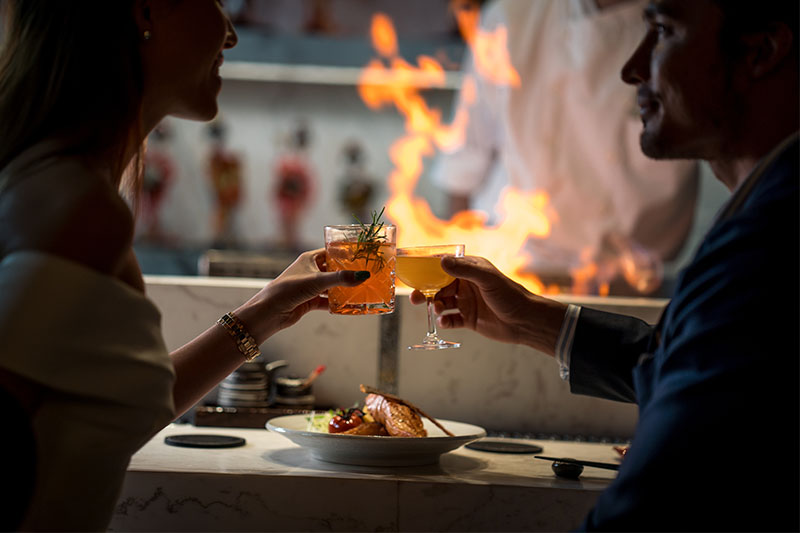
Navigating China’s Entrepreneurial Scene
Entrepreneurship is notoriously difficult in China – especially for foreign-owned businesses. Startups routinely struggle against laborious administrative processes for obtaining licenses and permits, difficulties in securing intellectual property rights, as well as rigorous competition faced by foreign businesses against local companies.
Starting off as a foreign-owned business in Shanghai, LAIBA is no different. Alexander recalls how the company needed to ensure its trademark was registered early on to ensure that it was properly protected in its intellectual property rights. Additionally, China is well-known for having exceptionally strict standards for food production when it comes to exports, due in large part to previous scandals involving baby formula and other food items. “It’s a blessing and a curse,” states Alexander. “It’s a curse because it adds a lot more work, cost, and time, but it’s also a blessing because it forces us to really be professional and have a high level of operation and production.”
He also points to the difficulties in developing a shelf-stable product that can be stored over a long period of time. “There are a lot of factors that come into play,” Alexander begins. “This ranges from how the drinks are blended and at which stage the ingredients are put together, to how the product is stored afterwards with heat and light and thinking about whether it’s exposed to oxygen. These all need to be optimised and upgraded many times before reaching a satisfactory level where we’re happy with the products.”
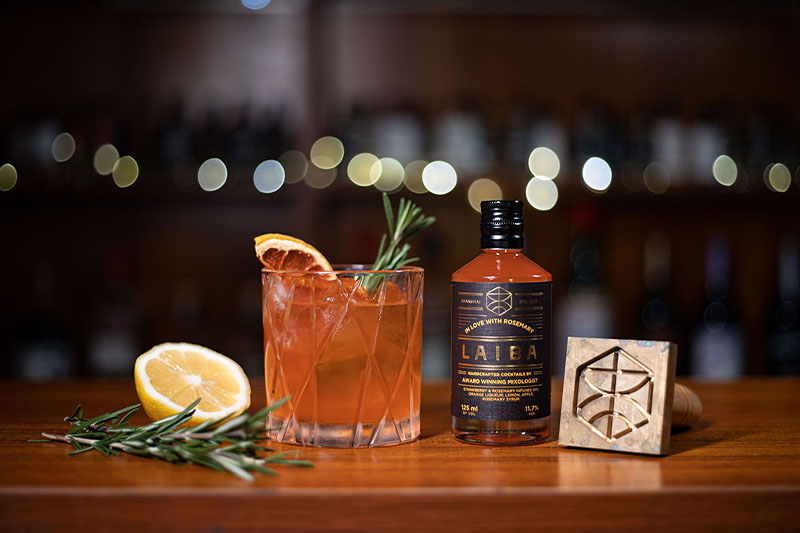
In spite of all these various hurdles, Alexander believes that it would have been hard to build and scale LAIBA up to the level that they are at today had they not been in China. “China can be quite a chaotic market to be in, but it’s also a place of amazing opportunity,” explains Alexander. “How we were able to iterate on low volumes, source at low prices, create the first versions, and run updates through feedback from our key clients, was all because of the easy feedback loop in China and the market availability of everything businesses need for pricing and delivery”, he points out. “China is always trying to find places it can update,” adds Alexander, “so setting up a business now is easier than it’s ever been, especially for foreigners.” In recent times, China has simplified many of its administrative systems by increasing the use of automation and made huge advancements in its intellectual property rights.
From B2B to B2C: Adapting Business Strategies to COVID-19
The COVID-19 pandemic has severely disrupted the catering industry. With lockdowns implemented across cities and people wary of going out, LAIBA’s hotel-related sales have understandably taken a hit, dropping to 40% of its previous levels.
However, LAIBA has responded by pivoting from B2B sales to B2C, moving away from hotel minibars and special events to home delivery. According to Alexander, the key to success during COVID-19 is to “find a way to access people’s homes.” He explains, “We started focusing a lot more on building our digital presence and branding out to online consumers as opposed to being so heavy on business-to-business.”
Enter LAIBA’s pretty ingenious ‘Bar in a Bottle’ campaign. This innovative new concept brings the signature cocktails from your favourite high-end bars straight to your living room, meaning that, for the first time ever, you can now experience world-class mixology from the comfort of your very own home. The best part about it? Customers are now able to support their local bars, in spite of COVID-19. On top of that, they can discover bars and products that they normally wouldn’t have access to, whether that be because of geographies or lockdown.
“We essentially leveraged other local brands and created products people can have at home. People can support businesses they used to go to and have the same quality as they experienced there,” adds Alexander.
As such, home delivery platforms selling retailable products have since become a key service and revenue stream for LAIBA, marking a distinct change in their business model.
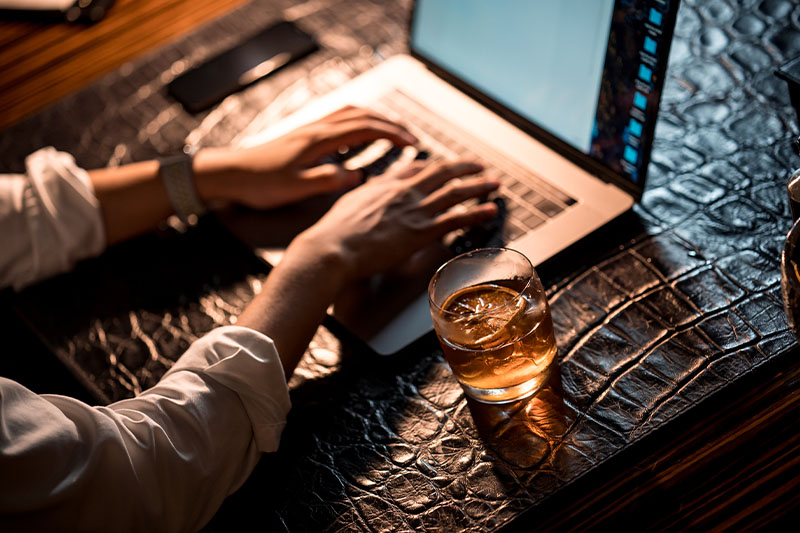
Final Words of Advice
Wrapping up the interview with a refreshingly optimistic outlook, Alexander mulls, “The Chinese characters for crisis are wei ji (危機), where the wei (危) stands for the crisis while the ji (機) is the opportunity. So, when you’re stuck in a storm, you should be building windmills instead of building shelter. There will be different ways to get opportunity; it’s just a matter of grit and hard work. If you’re still struggling, just believe that good days will come.”
Related Articles
Cocktails On Tap: A Modern Mixologist’s Reality at Draft Land
